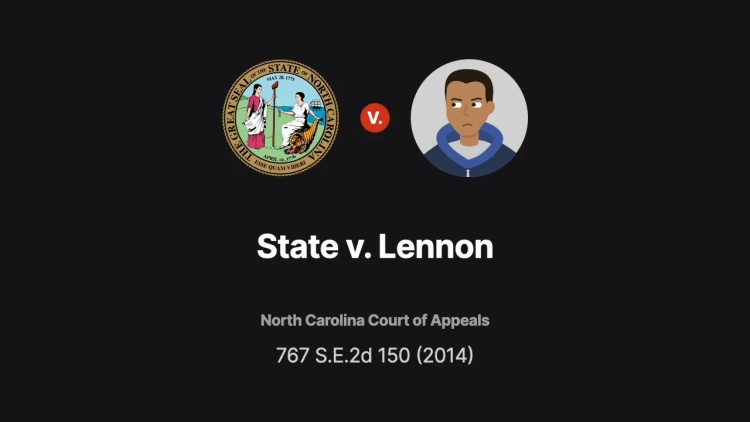State v. Lennon
North Carolina Court of Appeals
767 S.E.2d 150 (2014)
- Written by Robert Cane, JD
Facts
Travis Lennon (defendant) was convicted of armed robbery for taking personal property that belonged to Jessica Porter. At trial, the prosecution (plaintiff) and defense each presented their versions of events. The prosecution offered evidence that Lennon approached Porter’s car after she parked in the parking lot of her apartment complex. Allegedly, Lennon pulled out a handgun and showed it to Porter. Next, Lennon forced Porter to give him her phone and wallet. Then, Lennon forced Porter to take him into her apartment for her phone charger and more valuables. Eventually, Lennon left Porter’s apartment. Porter called the police, and the police located Lennon using the GPS on Porter’s phone and arrested him. The defense offered evidence through Lennon’s testimony that painted the initial encounter between Lennon and Porter as friendly and innocent. Lennon alleged that he saw Porter struggling to carry her belongings into her apartment, so he asked her if she needed help. Lennon claimed that Porter responded positively to his offer to help, handed him a bag, and invited him into her apartment. Lennon testified that Porter’s valuables were on a table in Porter’s apartment and that he took the property at that time without the use of a handgun or the threat of force. Before the case went to the jury, Lennon requested that the trial court instruct the jury on larceny from the person as well as misdemeanor larceny as lesser included offenses of armed robbery. The trial court refused, instead instructing the jury on common-law robbery as a lesser included offense. The jury convicted Lennon of armed robbery and two other crimes. Lennon appealed.
Rule of Law
Issue
Holding and Reasoning (Hunter, J.)
What to do next…
Here's why 907,000 law students have relied on our case briefs:
- Written by law professors and practitioners, not other law students. 47,100 briefs, keyed to 996 casebooks. Top-notch customer support.
- The right amount of information, includes the facts, issues, rule of law, holding and reasoning, and any concurrences and dissents.
- Access in your classes, works on your mobile and tablet. Massive library of related video lessons and high quality multiple-choice questions.
- Easy to use, uniform format for every case brief. Written in plain English, not in legalese. Our briefs summarize and simplify; they don’t just repeat the court’s language.





